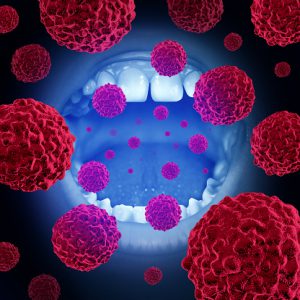 Lead poisoning is an ongoing risk for children living in New York City. According to NYC Environment & Health Data 2016, 300 children in New York City were found to have dangerously high lead levels in their blood.
Lead poisoning is an ongoing risk for children living in New York City. According to NYC Environment & Health Data 2016, 300 children in New York City were found to have dangerously high lead levels in their blood.
While the rate of lead poisoning has generally declined since 2008, it is important to know you and your family’s risk of lead exposure or how harmful it can be to your health.
Lead is harmful when ingested or inhaled. Lead that gets into your body can travel to many organs by the bloodstream It can stay in certain organs for up to 25 years. Children absorb more lead from digestion than adults (up to 70 percent versus 20 percent in adults). Because children have a growing brain they are more prone to develop serious health complications caused by lead. Lead poisoning can lead to intellectual disabilities, decreased IQ, seizure disorders, behavioral problems, peripheral neuropathy (nerve disease), hearing loss and brain damage. These effects go on to adulthood.
Lead poisoning is more common among urban than rural children, low-income than middle-income children, and children who live in older housing. Children with Sickle Cell Disease are at an increased risk for medical problems from lead poisoning.
Lead is a metal present in the environment; it can be found is various places such as:
Lead based paint: Dust produced as lead based paint deteriorates or during renovations, particularly in houses built before 1978
Water pipes: Decay of old lead based pipes, fixtures or solders connecting drinking water pipes
Places of work: Parents working in industries such as construction, plumbing, mining, smelting may be exposed to and bring home particles containing lead
Other sources: Candy, make up, glazed ceramic pots, pewter pots, herbal medicine from other countries
Lead testing is recommended for those who may be at risk for lead poisoning; this includes:
- All children at 12 and 24 months. (this may change based on local recommendations)
- All pregnant women (pregnant women exposed to lead may potentially put their unborn child at risk)
- Children and adolescents between 6 months and 16 years of age who enter the United States as an immigrant or refugee
- Parents with certain occupations or hobbies (e.g., smelting, soldering, auto body repair)
- People who live in or visit a home or child care facility with an identified lead hazard
- People who live in or visit a home or child care facility that was built before 1960 and is in poor repair or was renovated in the past six months.
There are steps you can take to prevent or reduce levels of exposure to lead:
- Run tap water before drinking or cooking: While the NYC water system from the upstate reservoir is essentially lead-free, older piping and fixtures may put lead into running water. It is recommended to run your tap for at least 30 seconds until the water is cold.
- Take care to read or research imported consumer products: Take caution with imported toys, jewelry, pendants, skin-lightening creams, camphor, ceramic ware or pottery, cosmetics and religious powders (Kajal, Kohl, Surma, Tiro, Sindoor), Georgian and Bangladeshi spices, as they may not meet the standards set in place by S. regulatory and health agencies.
- Make sure your home is safe: Make certain that your place of residence is currently not exposed to lead
According to the New York Department of Health, a new program to test lead in drinking water is now available for New York State residents. To learn more about this program, visit
https://health.ny.gov/environmental/water/drinking/lead/
If you are concerned about lead exposure for yourself or your family, please make an appointment to see your doctor as soon as possible.
To schedule an appointment with a Family Medicine doctor at Jamaica Hospital Medical Center, please call 718-206-6942.

Yogaalakshmi Sundararajan M.D. Family Medicine
All content of this newsletter is intended for general information purposes only and is not intended or implied to be a substitute for professional medical advice, diagnosis or treatment. Please consult a medical professional before adopting any of the suggestions on this page. You must never disregard professional medical advice or delay seeking medical treatment based upon any content of this newsletter. PROMPTLY CONSULT YOUR PHYSICIAN OR CALL 911 IF YOU BELIEVE YOU HAVE A MEDICAL EMERGENCY.





